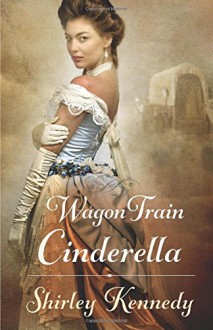
I won’t pretend that this is in any true sense a review, or that it’s unbiased and objective. Roses and Rot is a book that I do actually know was not written literally and specifically for me, but I don’t entirely believe that’s the truth. It combines so many elements that are not only Relevant to my Interests, but really, really important to me. And it does them well. The prose throughout is a joy to read, and there’s just enough, but not too much, meta-self-awareness to make the story shine. It is maybe not utterly perfect–it’s clearly written by someone who often writes short stories and this usually works and once or twice becomes a little too apparent in a way I can’t quite articulate. Nonetheless, it will absolutely be a favorite book for this year/forever.
I suspected I would love this book when I got to page 16 and this bit:
“Even though I hadn’t said so, I knew exactly the thing I had come to Melete to write–a novel told in stories, told in interweaving fairy tales, about the girls who get lost in the woods, and how it is that they come to be there, and whether or not they can save themselves. About the stories that lead them into the dark places of the forest, of their lives, and then become the maps by which they find their way out. I had known for a while that this was something I wanted to do, a story I needed to tell.”
Fairy tales are woven throughout this book, the ones Imogen knows–and she does know them; I grew up reading the complete Grimms and The Fairy Ring and Andrew Lang and Pepper and Salt and so often people say they love fairy tales and they just mean Beauty and the Beast. Imogen knows them. And she takes their elements and writes them again, fresh and beautiful. Fairy tales are not exactly morality tales in this story. They’re what Imogen calls them above: maps to find your way, stories that lead you through.
I knew I would love this book when I reached page 18 and recognized myself:
“So you learned the power in silence, and in secrets. Maybe you still look over your shoulder, but at least you got away. And after all, if you’d had a childhood that was different, one that didn’t always feel like walking on knives, maybe you would never have found your voice. If you hadn’t been forced to swallow your words, you would never have learned the power in speaking them. This is what you tell yourself. This is how you keep breathing. This is what happily ever after means.”
This is a book about surviving, and escaping, and living afterwards. It’s about finding ever after in a shape that’s real. It spoke so many things that I recognized, deep down, as true. They were things I needed to hear; they were things that helped because it meant someone else had felt them too.
But it’s also about the stories we tell ourselves. Some of them are true and some of them aren’t. Some are mostly true, but we can only see it from our own angle. Part of what Imogen has to learn over the course of the book is how to see stories from someone else’s point of view.
Often that point of view is her sister, Marin. They have a complex, tangled, relationship that is nonetheless the most important in the story. I always want stories about sisters, and this one gave me a version that didn’t have easy answers, and yet was entirely satisfying. Marin and Imogen are kind of mirror images of each other; dark and light, dancer and writer, praised and hurt. But it’s not that simple, and Howard also presents women who are vivid and complicated, who both engage with tropes and resist them.
Furthermore, I often find books that talk about writing from the perspective of a writer to be either unbearably overwrought or else so heavy-handed that I feel like they’re wink-wink-nudge-nudging me. Roses and Rot was neither; it gave a sense of Imogen as really a writer, in the way she approaches the craft as well as the art.
AND THEN, as if all of this was not enough, THEN–oh, I suppose this is a middling sized spoiler–I reached a certain point and started to say, “Wait. Wait. Is this book going where I think it’s going?” IT WAS. As if fairy tales, and surviving and sisters and writing weren’t already enough to make me love this book, it turned into a Tam Lin retelling where Imogen has to save Marin.
Tam Lin, in case you have not already gathered this, is probably in my top 2 fairy tales and a retelling centered on sisters is all I didn’t know I wanted. I can say that it ties back into the theme of Imogen escaping and leaving Marin behind, that it’s the task she has to complete to leave the forest, but that’s all too rational for my actual experience. I might have shrieked a little bit.
Also, I will mention, it contains both properly scary fairies AND a really insightful bit about the relationship of fairy tales and properly scary fairies. As if I still needed to be charmed.
So, like I said, I can’t be in any way objective about this book. It wasn’t a book I enjoyed; it was a book I needed. Like An Inheritance of Ashes last year, it was a book that made me feel recognized and seen. It is in its own way a map out of the forest.

 Log in with Facebook
Log in with Facebook 









